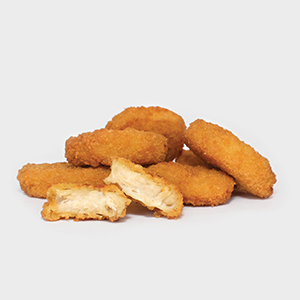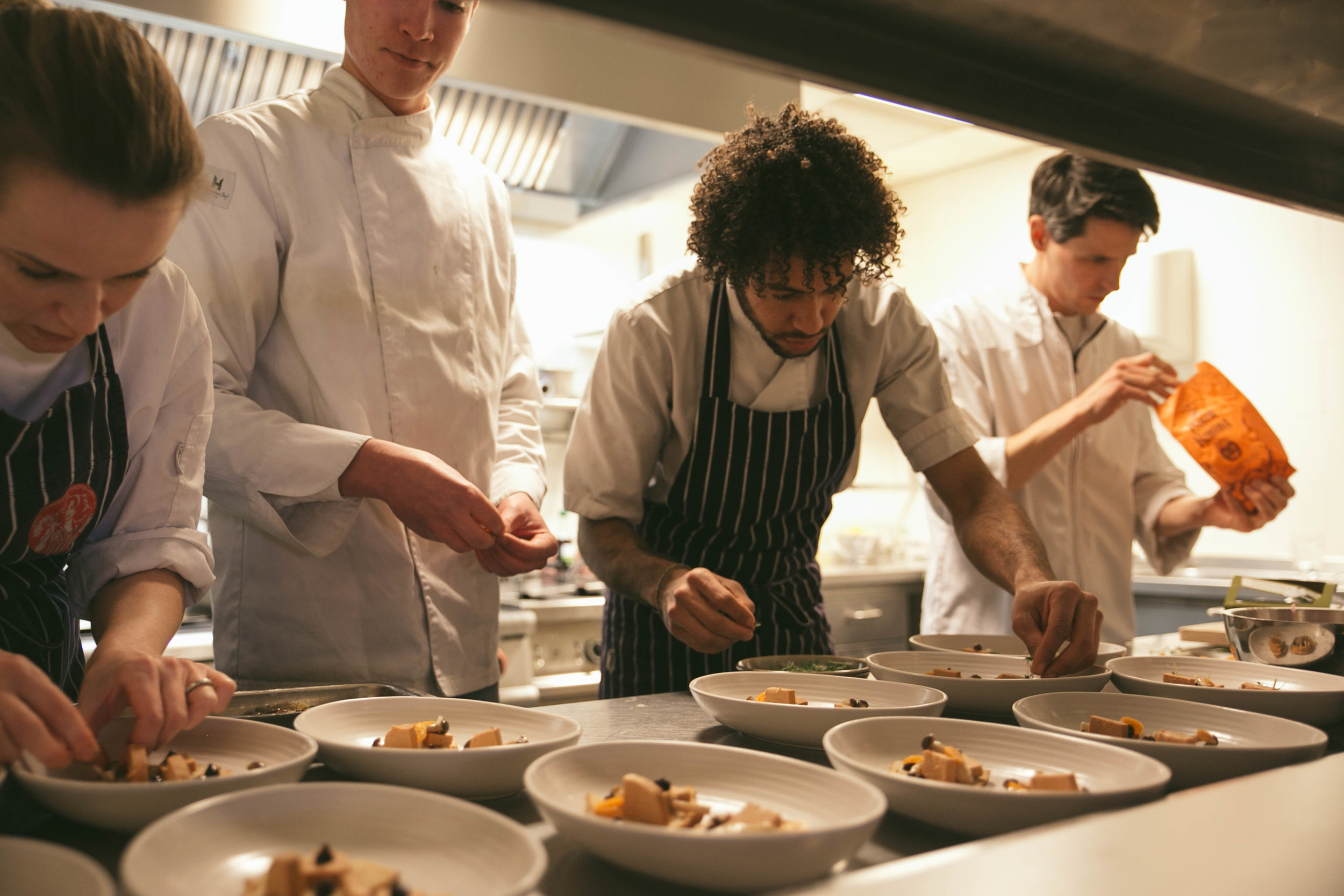Vegetarian Butcher
While interest in vegan and vegetarian diets is at an all-time high, the fact is most people enjoy eating meat.
This may have positives from a nutritional stand point, given the high protein value of meat. But as the world’s population grows, demand for protein can’t be met with animal meat alone. A chief reason is that the raising of farm animals places enormous strains on the environment, consuming vast amounts of land, water, energy and other resources.
Jaap Korteweg, founder of the Vegetarian Butcher
Rising global demand for protein, together with concerns about the sustainability of meeting this demand through animal meat, is driving innovation in meat alternatives that taste like the real thing. Companies around the world, including several based in the Netherlands, are racing to develop plant-based meat substitutes that closely resemble the taste and texture of animal, poultry and fish meat.
“The reality is that people are accustomed to eating meat, so the simplest way to satisfy this demand is to concentrate on substitutes for familiar meat products,” says Jaap Korteweg, a founder of the Vegetarian Butcher, a Utrecht-based company that develops and sells plant-based meats. “But for vegetable meat products to gain wide acceptance, the taste, preparation, mouthfeel and overall experience must emulate animal meat products.”
Vegetarian Butcher products.
“Our ideal is to have meat enthusiasts experience our products and have them realize they don’t have to miss out on anything if they take meat out of their diet for one or more days,” adds a Vegetarian Butcher spokesperson. “Freeing animals from the food chain is one of our most important values. This will not only provide huge benefits in terms of efficiency, environment, climate, bio-diversity and the world food supply, but also in terms of animal welfare.”
One of the most entrepreneurial ventures in the meat alternatives space, the Vegetarian Butcher aims “to become the biggest butcher in the world without ever slaughtering an animal,” according to Korteweg. The company sells a variety of products, ranging from fish-free tuna to pork-free bacon and meat-free bratwurst, at more than 4,000 locations in 15 countries. Retail outlets include dedicated Vegetarian Butcher stores in several European countries as well as leading supermarket chains. The Vegetarian Butcher sells products under its own label and also under supermarket brand names.
Sophie, a waiter at De Vleesch Lobby
Consumers in the Netherlands and other European countries generally must pay a premium for plant-based meat substitutes, including those produced by the Vegetarian Butcher. “At the moment, our retail prices are comparable with the price of organic animal meat,” says Korteweg. “With our own production facility, production will be cheaper and more efficient and we will be better able to compete with meat. We believe that while meat prices will rise significantly in coming years, the price of our meat substitutes will head in the other direction.”
The Vegetarian Butcher recently opened a factory in Breda. “We don’t make all of our products there yet, but we are looking forward to expanding production in Breda,” says Korteweg. “This will allow us not only to better control costs, but also to expand our line of plant-based products.”
In another innovative move to boost the popularity of plant-based meat alternatives among meat lovers, the Vegetarian Butcher recently opened its own restaurant, called De Vleesch Lobby (“The Meat Lobby” in English). De Vleesch Lobby, located at the Hooikade in The Hague, is one of the first restaurants in the world where vegetable meat is the main focus. The menu features such dishes as NO-fish cakes, smoked NO-mackerel, tacos with NO-pulled pork and NO-chicken nuggets.
De Vleesch Lobby “really caters to consumers who want the meat flavor and experience, but who want a break from meat sometimes and are curious to try the meat-alternative concept. These are sometimes people who say ‘I’ve already eaten meat four nights this week, so I think I’ll give this a try,’” explains Sophie, a waiter I met on a June visit. “I believe it’s the only restaurant of its kind in Europe.”
No-Chicken Nuggets
The Vegetarian Butcher is also part of a Dutch research consortium, called Plant Meat Matters (PPP), that is exploring new ways to turn plant proteins into materials that closely resemble animal meat.
Founded in 2017 and centered at Wageningen University and Research (WUR), the PPP project has focused on using shear cell technology to convert proteins from plants such as soy, wheat, peas, corn, lupin and rapeseed into fibrous materials that closely resemble meats such as steak. These materials can be easily flavored with spices, herbs and flavour additives. In addition to WUR and the Vegetarian Butcher, consortium partners include Delft University of Technology, food giant Unilever, ingredients supplier Ingredion and Swiss seasonings group Givaudan.
Korteweg says the Vegetarian Butcher has not yet incorporated any materials developed by Plant Meat Matters into its product line, “but we look forward to do so.”
Information about the Vegetarian Butcher is available at www.thevegetarianbutcher.com. For information about De Vleesch Lobby restaurant, please visit www.devegetarischeslager.nl/restaurant
The kitchen at De Vleesch Lobby restaurant.







